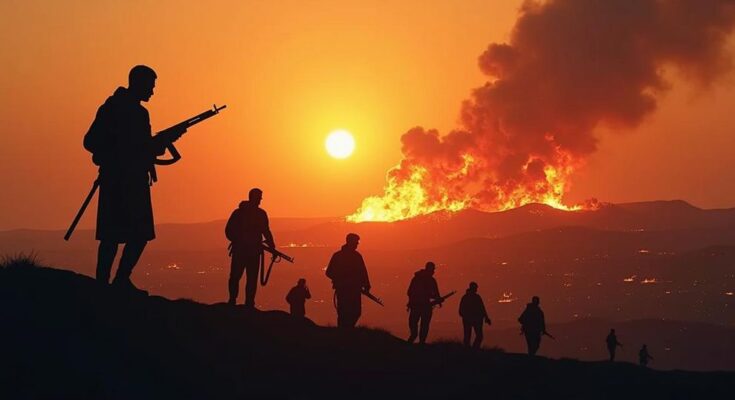The assassination of Hezbollah leader Hassan Nasrallah may lead to significant conflict in the Middle East, raising fears of broader regional warfare. Iran and Israel’s subsequent actions are critical in determining the future of the region’s stability, with heavy international diplomatic efforts ongoing to avert catastrophe. Both countries face internal challenges, exacerbating the complexity of their potential responses.
The assassination of Hassan Nasrallah, the leader of Hezbollah, has triggered widespread concern regarding the potential escalation of conflict in the Middle East. Images from Beirut reveal a tense atmosphere as the region braces for possible repercussions from this significant event. The looming question is whether this assassination will ignite a broader regional war that could involve multiple nations. The United States and its allies are determined to mitigate this outbreak of violence, emphasizing the need for immediate de-escalation and diplomatic resolution. President Joe Biden referred to Nasrallah’s elimination as a “measure of justice,” recognizing Hezbollah’s designation as a terrorist organization by Western countries. Nevertheless, there is mounting anxiety over Iran’s likely response. Following the assassination, Iran has suggested that Israel will “regret their actions.” Given the historical context, Iran’s involvement could be predicated on its alliance with Hezbollah, which it views as crucial to its defense strategy against potential Israeli attacks. Despite the volatility, Iran faces internal challenges, including debilitating economic sanctions and recent civil unrest, which may restrict its ability to react aggressively. The Iranian leadership, while ideological, is also pragmatic and may choose to avoid direct confrontation, especially when its influence in the region appears to be weakening. Furthermore, Israel may seize this opportunity to undertake military operations against Hezbollah. However, such a campaign could provoke a significant escalation, drawing in Iranian proxies stationed in Syria and complicating an already precarious situation in southern Lebanon. The outcome may further destabilize Lebanon, a nation already struggling with the remnants of its civil war and delicate multi-denominational political dynamics. Despite intense diplomatic efforts from both Western and regional parties aimed at preventing further escalation, recent attempts at dialogue have failed. The current affairs compel both Iran and Israel to make pivotal decisions that could either lead to a confrontation or pave the way for calm. In conclusion, the assassination of Hassan Nasrallah has heightened tension across the Middle East, with potential for a wider conflict contingent upon the reactions of Iran and Israel. While the region teeters on the brink, the hope for diplomatic resolutions remains tenuous amid rising hostilities and geopolitical complexities.
The assassination of Hassan Nasrallah signifies a turning point in Middle Eastern politics, with profound implications for regional stability. As the leader of Hezbollah, Nasrallah has been a key figure in the resistance against Israel, which attributes numerous violent acts to the organization throughout the years. The United States has labeled Hezbollah as a terrorist group, leading to strained relations between America, Israel, and Iran, which supports Hezbollah. The backdrop to this event includes heightened tensions in the region, ongoing conflicts involving Iran’s influence, and the precarious state of Lebanon’s political landscape, characterized by a fragile balance among various factions. Western diplomats have been striving to broker peace and prevent escalation, yet their recent efforts have not yielded fruitful outcomes, raising alarms about a prospective regional war.
In summary, the assassination of Hassan Nasrallah poses a grave threat to regional tranquility, compelling both Iran and Israel to navigate an intricate web of political and military challenges. The reactions from these nations will likely determine whether the Middle East will plunge into a wider conflict or manage to avert disaster through diplomacy. As the international community vigilantly observes these developments, the stakes are higher than ever for peace in the region.
Original Source: news.sky.com




